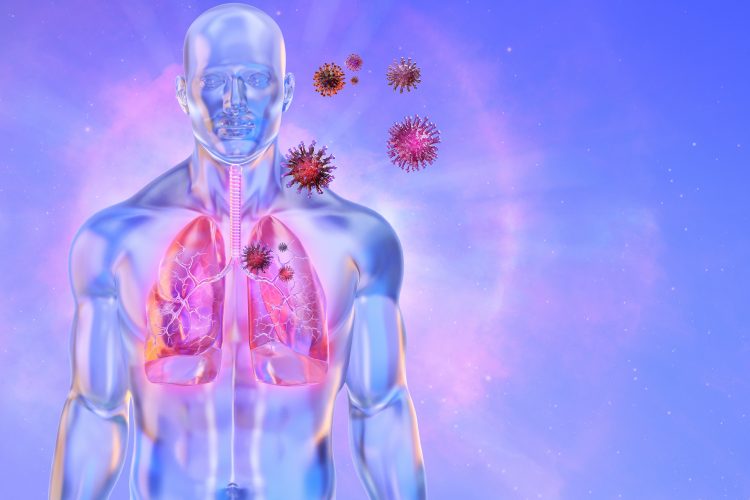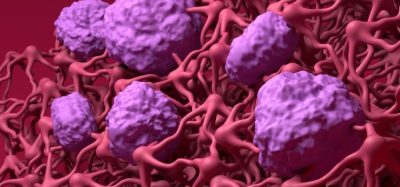IL-6 signalling blockade alleviates severe COVID-19 symptoms
Posted: 1 September 2020 | Hannah Balfour (European Pharmaceutical Review) | No comments yet
Scientists have shown that treating COVID-19 patients with severe respiratory complications with an IL-6 signalling inhibitor improved their symptoms.


Researchers have identified a potential treatment for over-active inflammatory response which causes severe COVID-19 symptoms. The team demonstrated that Actemra®, which inhibits IL-6 signalling, alleviates severe disease symptoms associated with cytokine release syndrome (CRS).
In a new study, researchers led by Japan’s Osaka University sought to understand how SARS-CoV-2 (the virus causing the COVID-19 pandemic) causes the myriad of symptoms that seem to linger long after active viral infection.
The most severe symptoms of COVID-19 are caused by ‘cytokine storm’, also known as CRS. Cytokines are a group of small proteins that can either enhance or inhibit our body’s immune response to infection, trauma and diseases like cancer. One of their primary roles is to stimulate inflammation, which initiates the healing process. However, the release of a large amount of protein factors that stimulate inflammation causes an array of harmful complications, including CRS. CRS is seen in patients suffering a hyperimmune response to microbial infection or trauma and can lead to multiple organ failure and death.
“Despite knowing which cytokines are involved, there is still no specific immunotherapy for CRS and treatment is limited to supportive care,” said the study’s lead author, Sujin Kang. “To better understand the molecular mechanisms of CRS pathogenesis, we first studied the cytokine profiles of 91 patients diagnosed with CRS associated with bacterial sepsis, acute respiratory distress syndrome [ARDS] or burns.”
According to the study, all three patient groups had elevated levels of proinflammatory IL-6, IL-8, IL-10 and MCP-10, as well as a protein called PAI-1, which causes small blood clots in vessels throughout the body, including the lungs. The team highlighted that increased PAI-1 levels are also associated with more severe cases of pneumonia, a common cause of death among COVID-19 patients.
![IL-6 in blood promotes thrombus formation via PAI-1. By suppressing IL-6, Actemra® reduces the severity of pneumonia caused by the cytokine storm [Credit: Osaka University].](https://www.europeanpharmaceuticalreview.com/wp-content/uploads/IL-6-covid-19-Actemra-image-661x500.jpg)
![IL-6 in blood promotes thrombus formation via PAI-1. By suppressing IL-6, Actemra® reduces the severity of pneumonia caused by the cytokine storm [Credit: Osaka University].](https://www.europeanpharmaceuticalreview.com/wp-content/uploads/IL-6-covid-19-Actemra-image-661x500.jpg)
IL-6 in blood promotes thrombus formation via PAI-1. By suppressing IL-6, Actemra® reduces the severity of pneumonia caused by the cytokine storm [Credit: Osaka University].
The researchers concluded from their research that because IL-6 was positively associated with the levels of the other cytokines and PAI-1, that IL-6 signalling is crucial for the development of CRS following infection or trauma and may play a role in the pathogenesis of COVID-19.
“Examination of cytokine profiles in severe COVID-19 patients revealed an increase in IL-6 early in the disease process, causing release of PAI-1 from blood vessels,” explained the study’s senior author, Tadamitsu Kishimoto. “Interestingly, PAI-1 levels were significantly higher in COVID-19 patients with severe respiratory impediment.”
The most significant finding of the study, said the authors, was that when severe COVID-19 patients were treated with Actemra, PAI-1 levels rapidly declined and severe disease symptoms were alleviated. Actemra is a human monoclonal antibody-based drug that inhibits IL-6 signalling. They therefore propose that IL-6 signalling blockade could be used for the treatment of both CRS and the severe respiratory complications of COVID-19.
The study was published in PNAS.
Related topics
Related organisations
Related drugs
Related people
Related diseases & conditions
Covid-19, Covid-19 pneumonia, Cytokine release syndrome (CRS), Cytokine storm, Sepsis









